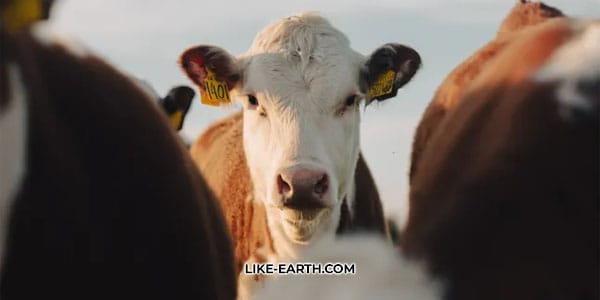Mad Cow Disease Confirmed on Essex Farm: Latest Update Today

Mad cow disease confirmed on Essex farm outbreak causes widespread alarm among farmers and health authorities. This serious animal disease, scientifically known as Bovine Spongiform Encephalopathy (BSE), poses risks to cattle health and potentially human safety if precautionary steps are not taken. The confirmation was made today after veterinary tests on affected cattle showed clear signs of infection. This article explores the details of the outbreak, symptoms to watch for, containment measures, and what this means for the local community and wider agricultural industry.
What is Mad Cow Disease (BSE)?
Mad cow disease is a fatal neurodegenerative disease affecting cattle. It belongs to a group of diseases called transmissible spongiform encephalopathies (TSEs). These diseases cause sponge-like holes in the brain tissue, leading to severe neurological symptoms. BSE spreads mainly through contaminated feed. The disease emerged as a major concern in the 1980s and 1990s but has since been under tight control in many countries.
Details of the Essex Farm Outbreak
The farm in Essex confirmed the presence of BSE today after routine veterinary screening. According to local agricultural authorities, multiple cattle exhibited symptoms such as erratic behavior, loss of coordination, and weight loss. Immediate testing was conducted, and laboratory results confirmed the disease presence. The farm has since been quarantined and strict biosecurity measures enforced to prevent further spread.
Symptoms Observed in Infected Cattle
- Changes in behavior or temperament
- Lack of coordination and difficulty walking
- Weight loss despite normal appetite
- Reduced milk production
- Increased sensitivity to stimuli
Farmers in the area are urged to watch for these symptoms closely. Early detection is key to controlling outbreaks and preventing contamination of the food chain.
Risks to Human Health
Humans can contract a variant of BSE called variant Creutzfeldt-Jakob disease (vCJD). This is very rare but serious. It is believed to be transmitted through consumption of infected beef products. Since the outbreak is localized, authorities reassure the public that beef products from unaffected farms remain safe. Nevertheless, all affected animals will be destroyed under strict regulations to eliminate any risk.
Government and Health Authority Response
The Department of Environment, Food & Rural Affairs (DEFRA) in the UK has issued a formal statement. They confirm the farm is under strict surveillance and testing protocols. Movement restrictions on cattle within Essex and surrounding counties are in place. Farmers are receiving guidelines on feed restrictions and hygiene practices. Additionally, a compensation scheme for affected farmers has been announced.
Preventive Measures for Farmers and Consumers
Farmers should:
- Avoid feeding cattle with meat and bone meal
- Maintain strict sanitation on farms
- Report any unusual cattle behavior immediately
Consumers are advised to:
- Purchase beef from trusted sources
- Stay updated with official health alerts
- Practice safe food handling and cooking
Impact on the Local Farming Community
This outbreak has understandably caused concern among Essex farmers. The local economy relies heavily on cattle farming. Strict controls are in place to minimize disruption. Support services including veterinary assistance and financial aid are available. Authorities emphasize that this isolated case does not signify widespread infection.
Further Reading and Resources
For ongoing updates and detailed agricultural guidance, visit Like Earth. This site offers extensive resources on sustainable farming and animal health.
To join community discussions or receive instant updates on agricultural issues, consider connecting through the official WhatsApp channel here: WhatsApp Channel.
Mad Cow Disease Confirmed
Mad cow disease confirmed on Essex farm is a serious development in animal health this year. Quick action by veterinarians and authorities helps control the outbreak and protect public health. Farmers and consumers must stay vigilant and follow official advice. Regular updates will be provided as the situation evolves.
Stay informed, stay safe, and support responsible farming practices for a healthier future.
Share This Article
Let your friends know about this exciting news!



